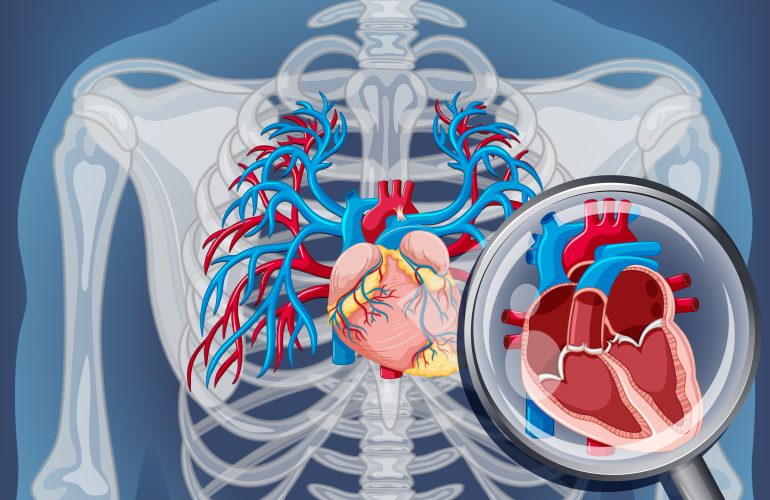Mind and Body: The Role of Physiotherapy in Psychiatric Patient Care
In the realm of mental healthcare, the importance of addressing the holistic needs of patients has gained increasing recognition. While traditional approaches to psychiatric care primarily focus on addressing cognitive and emotional symptoms, the role of physiotherapy in this domain has emerged as a vital component in promoting overall well-being by bridging the gap between mind and body.
Often associated with physical rehabilitation, it encompasses a diverse range of interventions aimed at restoring, maintaining, and promoting optimal physical function and mobility. While its applications in orthopedic and neurological conditions are well-established, its integration into psychiatric patient care represents a paradigm shift towards a more comprehensive and holistic approach to treatment.
Here’s why you require a Physiotherapy:
OBJECTIVE:
One of the primary objectives of physiotherapy in psychiatric patient care is to address the pervasive issue of sedentary behavior and its detrimental effects on mental health. Individuals with psychiatric disorders, such as depression, anxiety, or schizophrenia, often experience a reduction in physical activity due to various factors, including medication side effects, social withdrawal, and lack of motivation. This sedentary lifestyle can exacerbate their symptoms and contribute to the progression of their condition.
Improved Physical Health:
- Enhancing cardiovascular fitness, muscle strength, and flexibility.
- Supporting weight management and metabolic function.
- Reducing the risk of chronic diseases such as cardiovascular disease and diabetes.
Enhanced Mental Well-being:
- Stimulating the release of endorphins and reducing stress hormones.
- Alleviating symptoms of depression, anxiety, and schizophrenia.
- Boosting mood and promoting a sense of well-being and self-esteem.
Social Connection and Support:
- Facilitating opportunities for social interaction and community engagement.
- Building meaningful connections and support networks.
- Combating social isolation and loneliness, which are common among psychiatric patients.
Improved Pain Management:
- Alleviating pain through manual therapy and therapeutic exercises.
- Enhancing physical function and restoring mobility.
- Improving overall quality of life and reducing reliance on pain medications
Empowerment and Self-Efficacy:
- Engaging patients in their treatment journey and decision-making process.
- Fostering a sense of autonomy and agency over one’s health.
- Building confidence and resilience necessary for long-term recovery and well-being.
Role of Physiotherapists-
Physiotherapists play a crucial role in breaking this cycle by designing tailored exercise programs that cater to the unique needs and capabilities of psychiatric patients. These programs may include a variety of activities such as aerobic exercises, strength training, yoga, and mindfulness-based practices. Through regular physical activity, patients not only experience improvements in their physical fitness but also benefit from the mood-enhancing effects of exercise, such as the release of endorphins and reduction of stress hormones.
Moreover, physiotherapy interventions extend beyond the confines of the clinic or hospital setting, empowering patients to integrate physical activity into their daily lives. Through education, behavioral modification techniques, and personalized goal setting, physiotherapists empower patients to overcome barriers to exercise and adopt sustainable lifestyle changes that support their mental health.
Why to Choose Physiotherapy for Psychiatric Patient Care?
In addition to promoting physical activity and social engagement, physiotherapy plays a crucial role in the management of comorbid physical conditions that often coexist with psychiatric disorders. Psychiatric patients are at increased risk of developing chronic health conditions such as cardiovascular disease, diabetes, and obesity, which can further comprise their overall health and quality of life. Physiotherapists collaborate with interdisciplinary healthcare teams to address these comorbidities through targeted interventions aimed at improving cardiovascular health, metabolic function, and weight management.
Furthermore, physiotherapy interventions encompass a holistic approach to pain management, which is prevalent among psychiatric patients and significantly impacts their quality of life. Through manual therapy, therapeutic exercises, and modalities such as acupuncture or hydrotherapy, physiotherapists help alleviate pain, restore function, and enhance patients’ ability to engage in meaningful activities.
In Conclusion-
The integration of physiotherapy into psychiatric patient care represents a significant advancement in the field of mental health treatment. By addressing the physical, psychological, and social dimensions of health, physiotherapy empowers patients to achieve holistic well-being and reclaim control over their lives. As we continue to recognize the interconnectedness of mind and body, the role of physiotherapy in psychiatric care will undoubtedly continue to evolve, paving the way for more comprehensive and person-centered approaches to mental healthcare.
![]()




